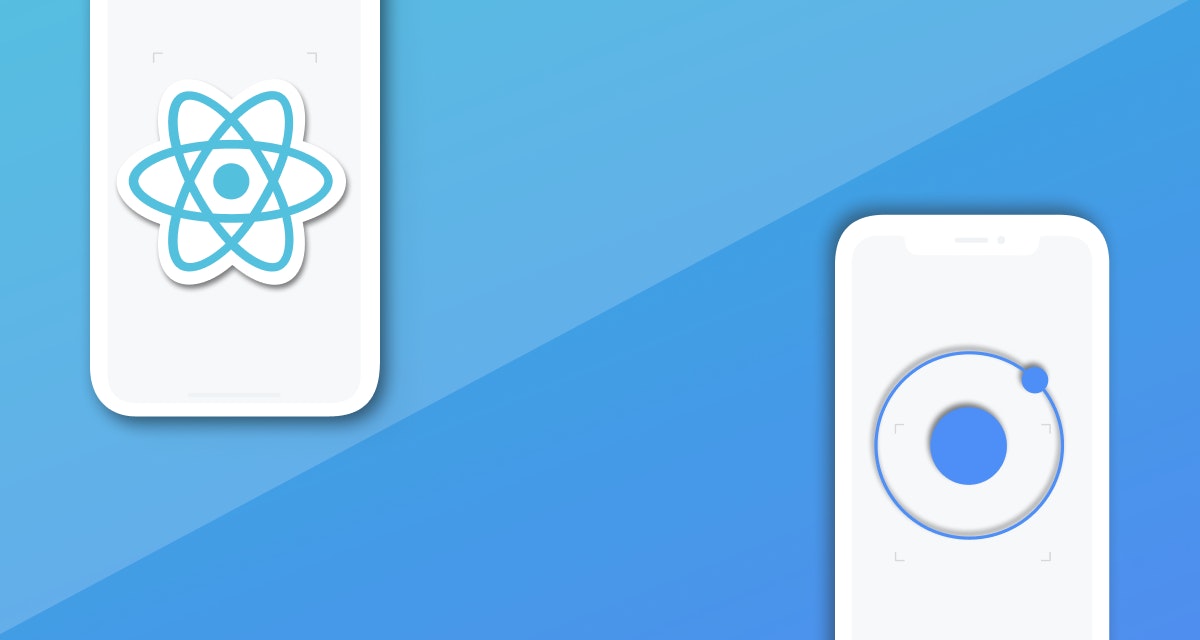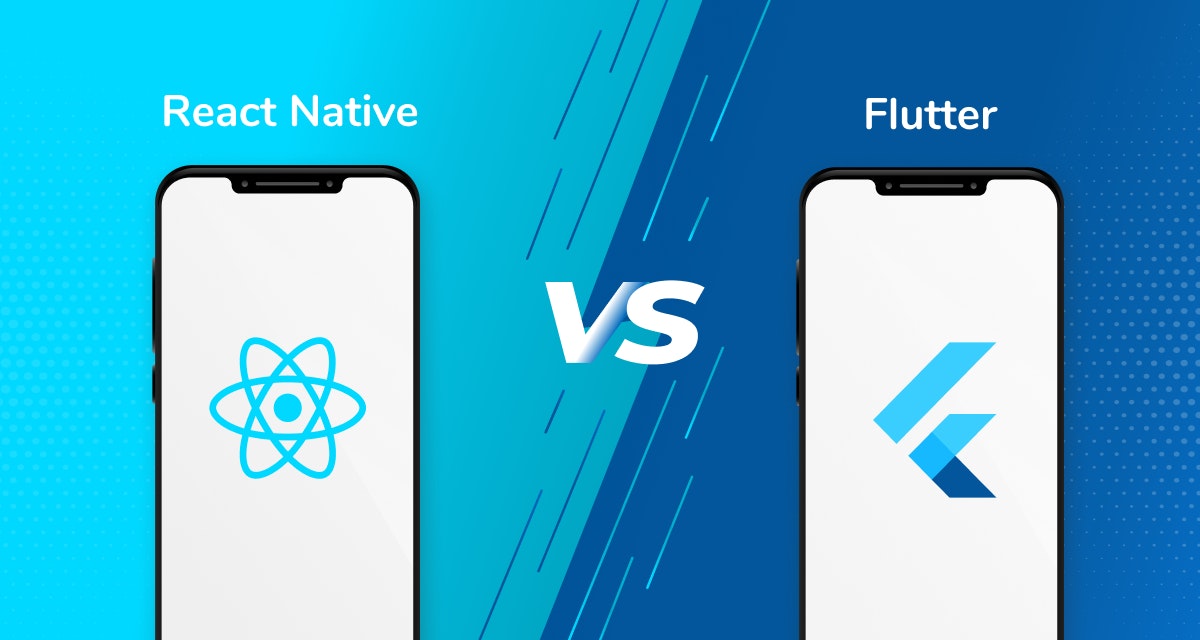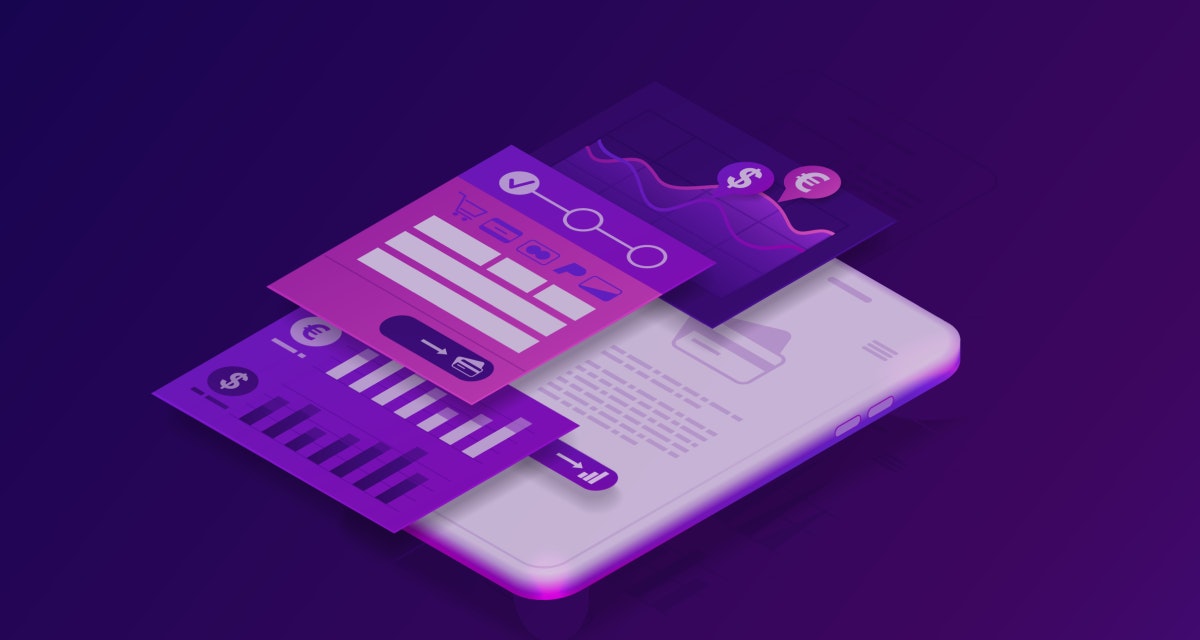Mobile Apps and the evolving customer mindset
Assuming a world without mobile apps can be a nightmare. A little bit of contemplation will help us understand how mobile apps have simplified every aspect of our daily lives.
Apps can connect us to our near and dear ones, offer simplified productivity solutions for business, and help us shop for our needs quickly, entertain ourselves with endless games, movies, books and much more.
Apps have brought us closer together and have made the world a much ‘smaller’ place.
So, it comes as no surprise that there has been a surge in the smartphone market that has also contributed to an increase in website traffic coming from mobile phones. The figures stood at 52.2% in 2018 and we are looking at steady growth for at least another decade to come.
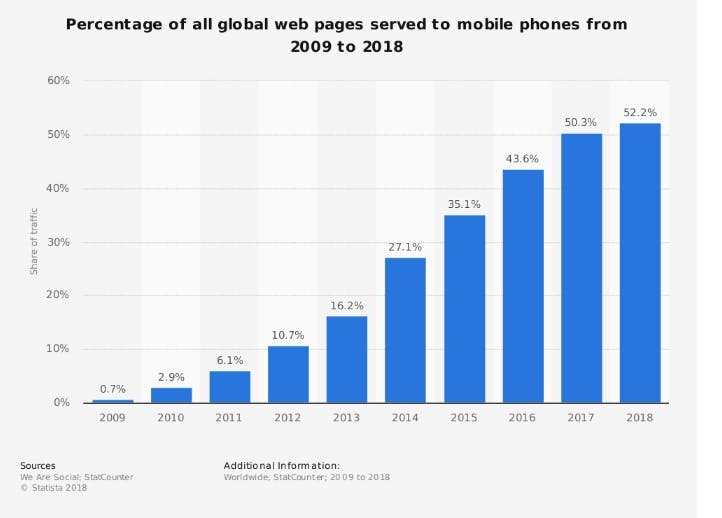
The cost-effectiveness of smartphones has increased its penetration into our daily lives increased our dependence on them. In fact, mobile apps have become our essential tools for a number of our daily activities.
In terms of business too, they are one of the most dynamic tools out there. They have given new meaning to customer service. This is inducing companies to move over to mobile applications to provide their customers with a seamless and up-to-date experience.
But many business owners are plagued by confusion about which framework to use to build their mobile applications.
We will try and solve this conundrum in this article.
But, before we go into the details of each framework, let’s understand the scenario from a customer’s point-of-view. With so much going on in the world of mobile apps, considering the expectations and mind sets of your mobile app users is top priority. After all, your business ultimately depends on your mobile app users.
Talking about customers, they’re least interested in the technology or platform you use to build mobile app. They’re more interested in how the app is helping them rather than how it’s made. This is where mobile app UI/UX comes in. Your choice of framework will depend on how it’s going to affect your final customer.
Research finds out that 79% of customers will try an app one or two times after it fails to work in the first go and 16% will give it up after two attempts.
The importance of UI/UX can’t be overstated. Now you know how important user experience is for your business.
Mobile app entrepreneurs or start-ups, who are not as tech-savvy can be worried about identifying if their mobile apps are appealing to their users. Let me tell you it’s also about the selection of a suitable mobile app structure from Native or Hybrid. Both platforms have their own pros and cons and you need to decide what your set of priorities are, before choosing a platform. In this article we delve into each platform and how your choice of platform will affect your end users.
Native Apps
Native applications are those which are created for just a single platform or device, such as Android, iOS, or Windows. There is also a specific native coding language used to build the app for a specific platform, such as Objective C or Swift for iOS, Java or Kotlin for Android, or C# for Windows. Some examples of native apps are Pokemon Go, Twitter, and Waze.
One of the primary reasons to choose a native mobile app framework is when you have the requirement to build apps unique to each platform. This takes double the time and effort but the final product is more appealing and user friendly for the end customer. You can offer your customers better performance, smoother interface, and higher data security.
Advantages of Native Apps
- Performance – Since there are similar versions of the applications for various platforms, the performance in each of them is smooth.
- Speed – Since the apps are optimised for each operating system separately, they are lightning-fast.
- Functionality – Native apps don’t require plugins to connect the device hardware features to different databases.
- User experience – They’re convenient to use since they can work in offline mode, have better scrolling options, gesture recognition, and a host of other animations and elements.
- Community – There is an entire community of developers who are adept in using the framework and can help you out in case of problems.
- Flexibility – Native apps provide fast access to device features such as camera, GPS, microphone, calendar, etc.
- Personalisation – With Native apps, you can customise the layout of your app to match any screen size in the market.
- Data protection – It’s extremely easy to secure the entire platform.
Drawbacks of Native Apps
- Requires time and money – Since the software is complex, it takes time to develop it. It’s also expensive to hire developers specialised in both platforms.
- Features and versions – Due to money-constraint, there may be some features missing or versions not updated in iOS or Android platforms.
Hybrid Apps
Hybrid Apps are those which are developed to perform well on multiple platforms such as Android, iOS, and Windows. Hybrid apps are actually a combination of native apps and web apps. They are built so as to work on multiple operating systems. They use multiple coding languages such as HTML5, CSS, and JavaScript. Some examples of web apps are Instagram, Evernote, Uber, etc.
If you’re going for a hybrid mobile app, you should know that to match the layout for each platform, they have to depend on APIs and third-party tools. They also use Web View to gain control of HTML and JavaScript files to run the different operating systems.
Advantages of Hybrid Apps
- Single code base – Since they run on a single codebase for both platforms, they are more preferred by bootstrapped startups.
- Low Cost – Building one application to run on multiple platforms can help save costs.
- Easy to build – They’re also easy to build since not much complex development or software knowledge is required.
- Maintenance – They can be updated as many times as you want, hence they have low maintenance.
- Shorter delivery time – They can be quickly delivered since they’re easy to code. You can beat your competition by going live in a shorter time.
Drawbacks of Hybrid Apps
- Performance – Since hybrid apps require a separate layer between source code and target platform, hence it can lower the performance.
- Security – Because of the extra layer, there can be potential security issues which can make debugging a problem.
- User experience – One code is used to work on multiple layouts, hence the user experience in each of them worsens.
- Internet connection – Some features of hybrid apps require an internet connection to work.
- Efficiency – Hybrid apps rely on several plugins and third-party apps to run so there can be a dip in efficiency.
Native Apps Vs Hybrid Apps
Now that you’re aware of the pros and cons of both, let’s summarise the points which sets them apart.
The basic difference, as you may have understood, is that while Native apps comprise of separate apps with different codebase designed for either Android app development or iOS app development, Hybrid apps have just one common app with a shared codebase that works for both platforms with a few tweaks.
Again, while Native apps are designed for a specific platform, Hybrid apps are suitable for cross-platform functioning. In relation to that, Native apps use programming languages that support only a specific platform whereas Hybrid apps use web technologies such as HTML and CSS that integrate the specific software features for each platform to make them look natural.
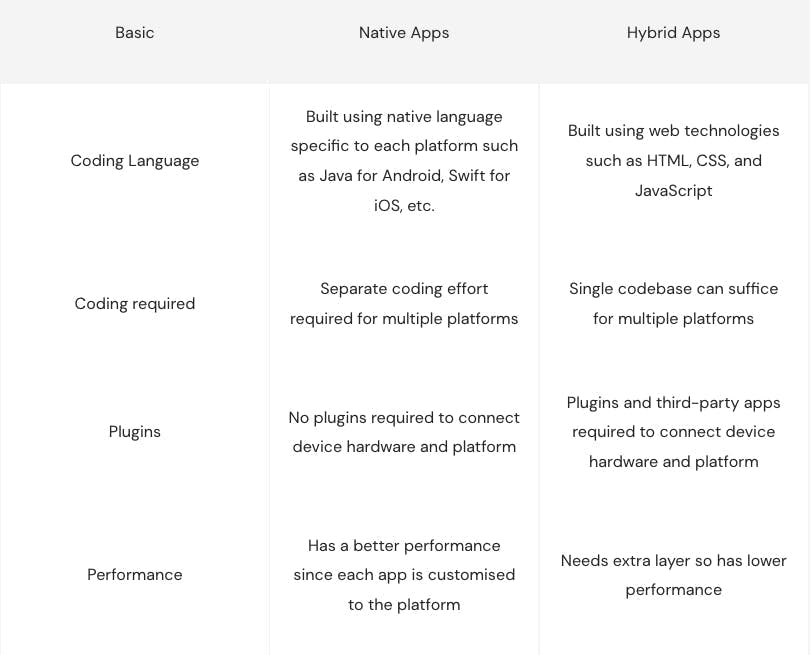
Native or Hybrid: Which is Best for your Business?
Both Native and Hybrid application frameworks have their own positive as well as negative points. Now picking the right framework depends on the app you are trying to build as well as the restrictions you face in terms of team strength and budgets.
Because of their higher security, Native apps are chosen more by institutions such as banks and insurance companies. Such large companies are willing to spend top dollar and hire more talent to achieve better security for customers.
Also, bigger companies are in a position to invest in Native apps to provide a better interface to their customers. On the other hand, Hybrid apps are perfect for startups with lower budget and strict delivery deadlines. They are apt for industries such as travel booking sites, review and ratings sites, food ordering sites amongst others.
Here is a list of steps to help you choose the right framework ideal for your project:
- First, determine your audience, the specific service, and the goal of providing that service. If it’s a content-oriented service, go for a hybrid framework. If security is of utmost importance, go for a native app.
- Next, chalk out your budget to zero in on the perfect framework for your business. If time and money are a constraint, then go for a hybrid app. If you can afford two separate teams for Android and iOS in exchange for stellar user experience, then go for a native app.
- Next, think of the long-term commitment required to maintain it. It’s always easier to manage one app than two. If you do not have the bandwidth in your internal team, go for a Hybrid app.
- Finally, remember that you should never compromise on the user experience. Having said that, not many customers will be able to differentiate between a Native or a Hybrid app at a glance. If you think speed is your ultimate goal in terms of user experience, then go for a native app. If you give more points to versatility, go for a hybrid app.
Choosing the right mobile app development partner
The truth is that every business is driven by its unique needs and criteria to choose their preferred framework. However, as a business owner you may not always have the technical know how to make a decision. In such a scenario, it’s best to consult with a mobile app development agencies and take their assistance in choosing the right framework.
We at Intuz have a team of capable mobile app development experts who excel in building Native Apps and Hybrid Apps as well. We are based in San Jose, and have been active contributors to the start-up ecosystem here.
If you are looking for a mobile app development partner in the United States, that can help take your vision from idea to app, then get in touch with us. We have over 1500+ successful app launches to our name, your project could be next.
Which mobile app development framework do you prefer? Did we miss out on anything in the comparison? Let us know in the comments below.


